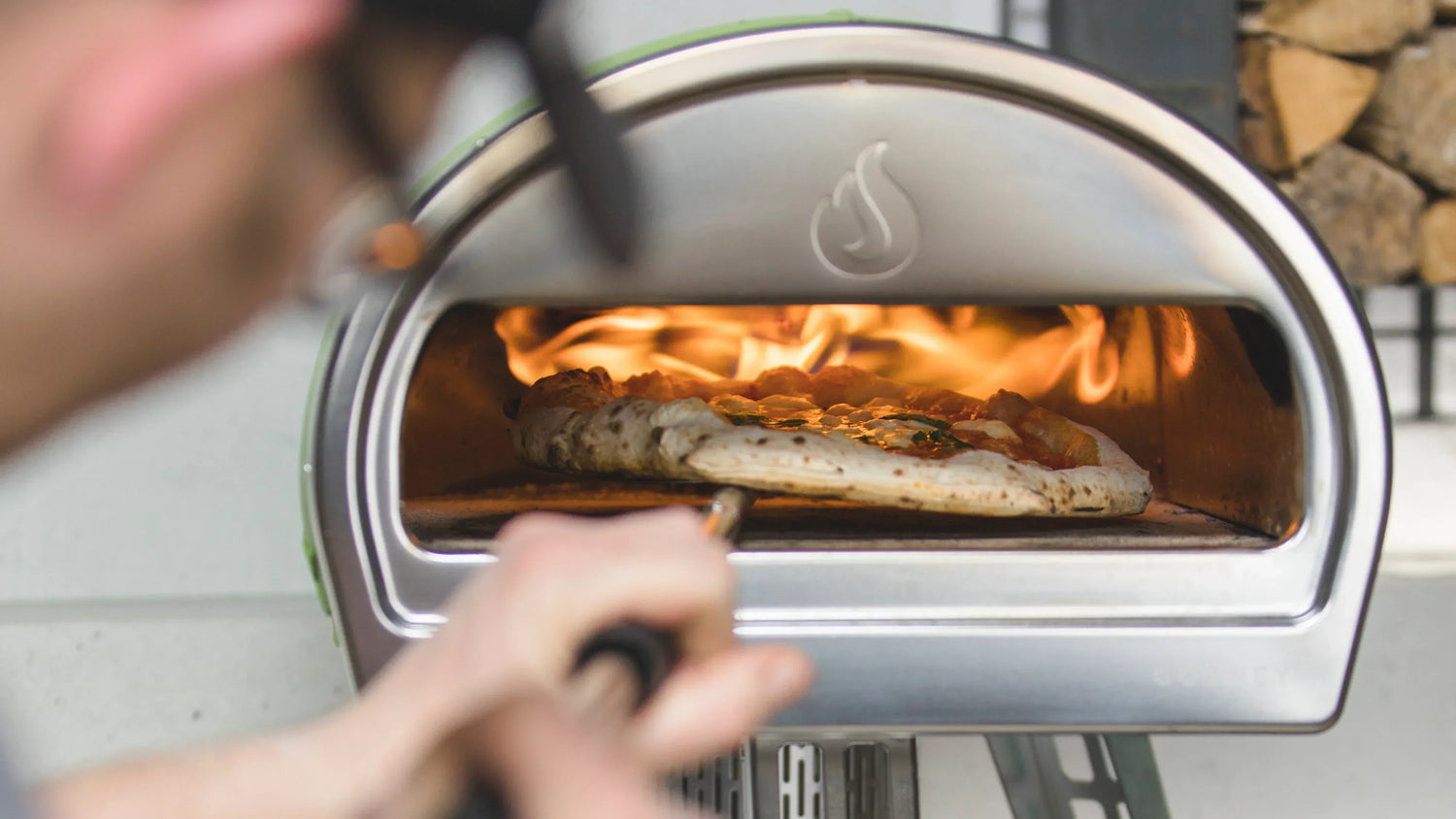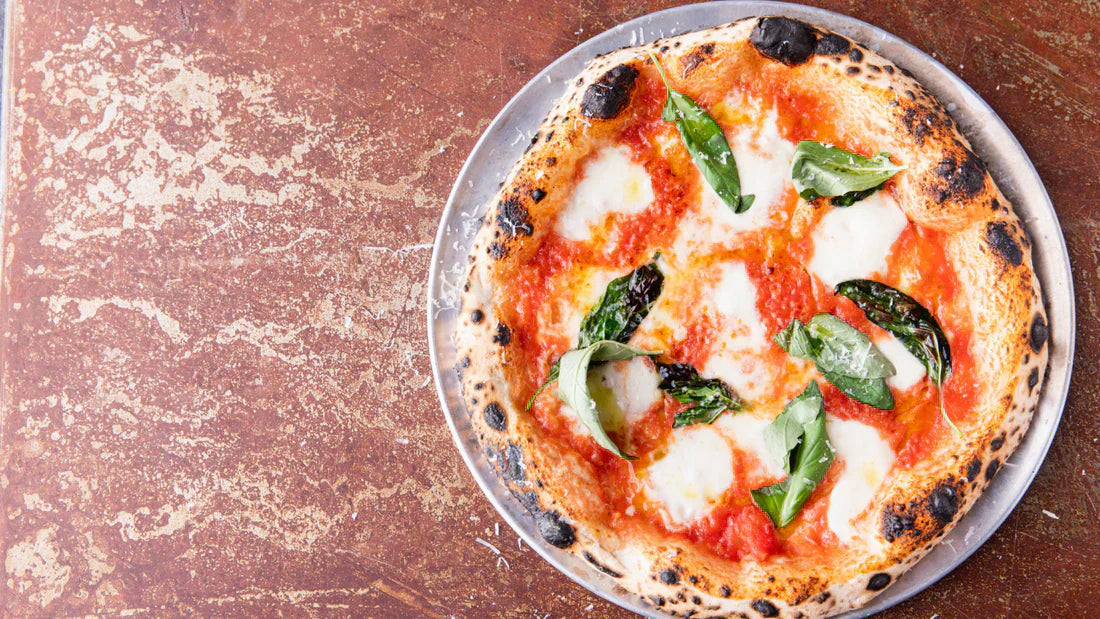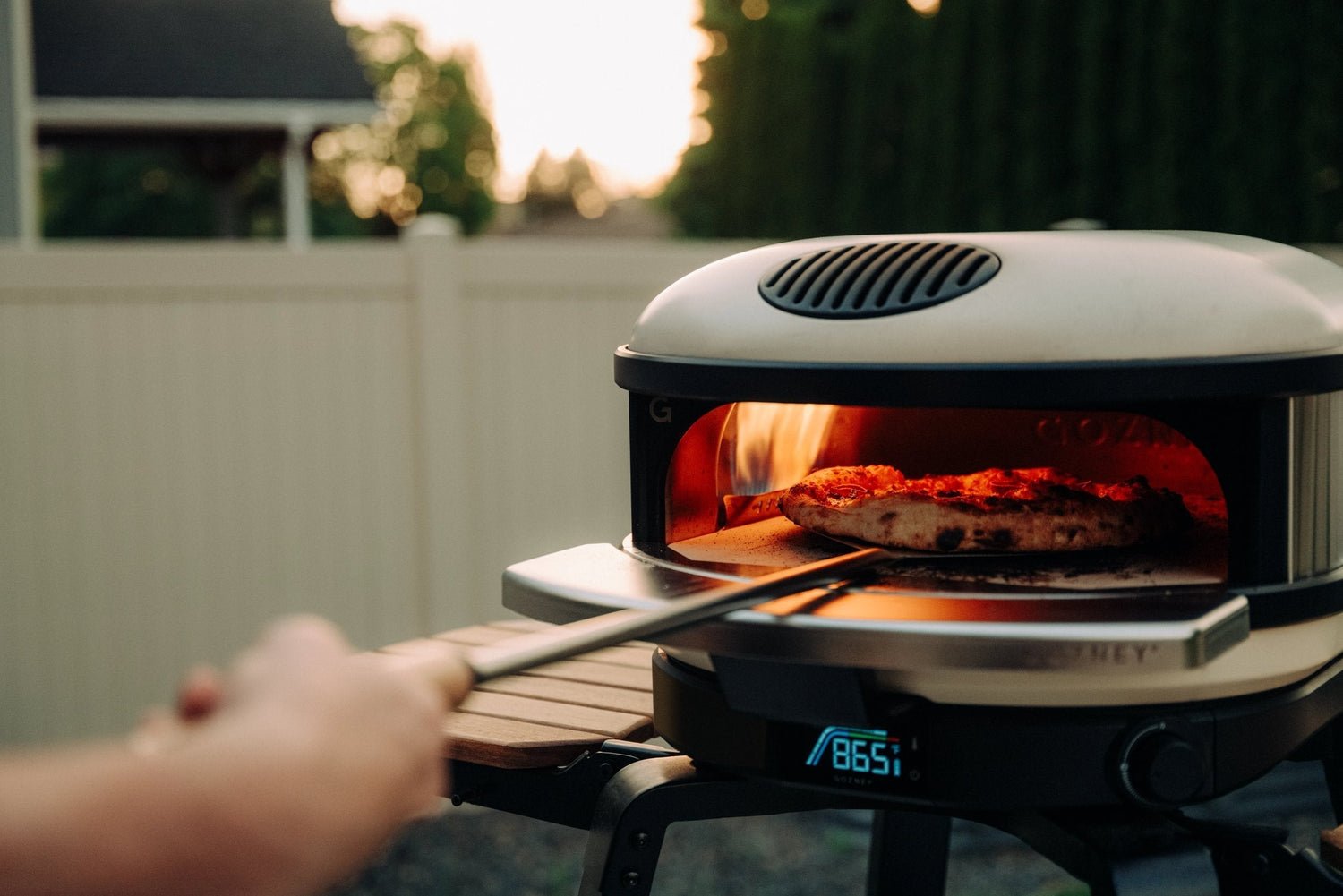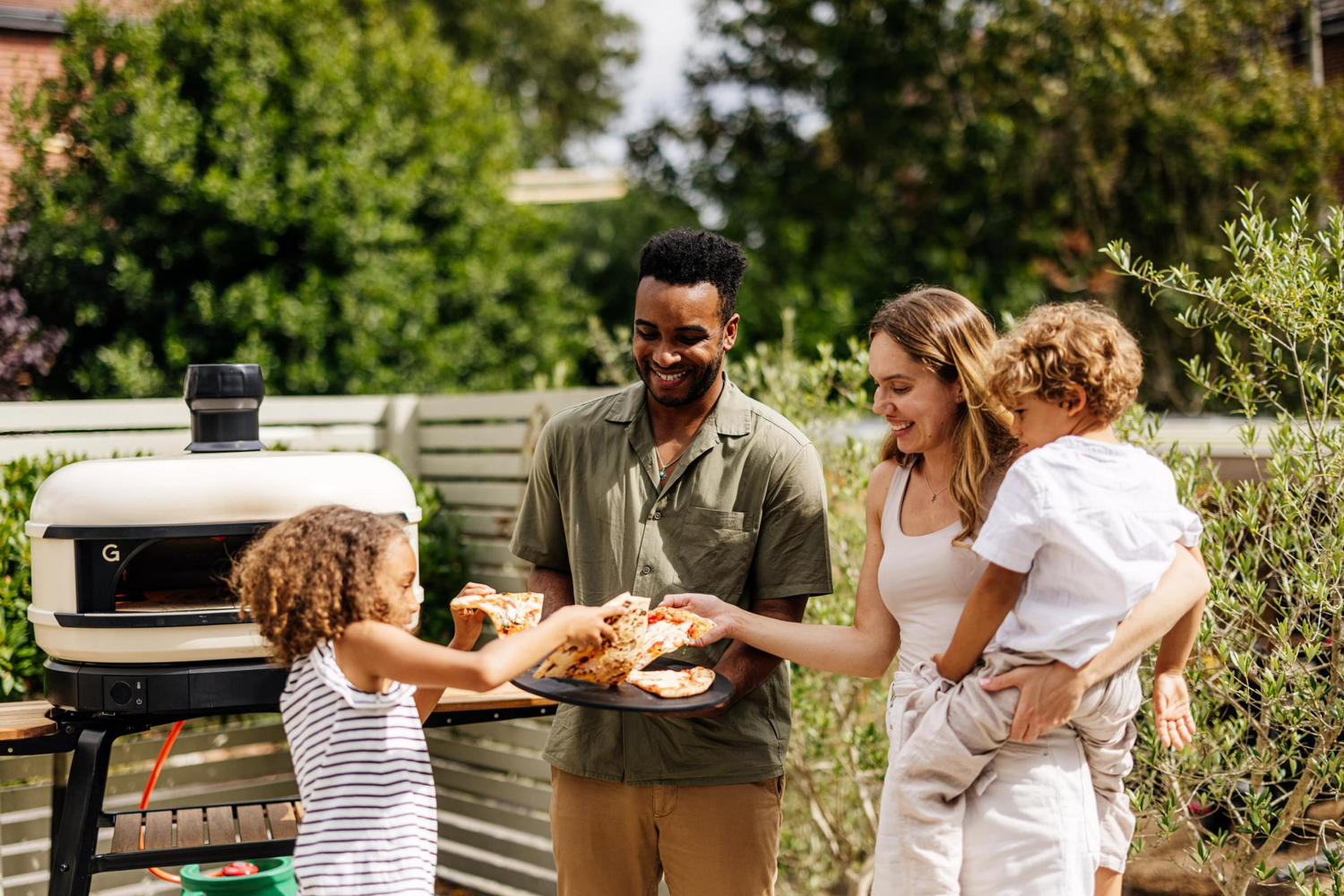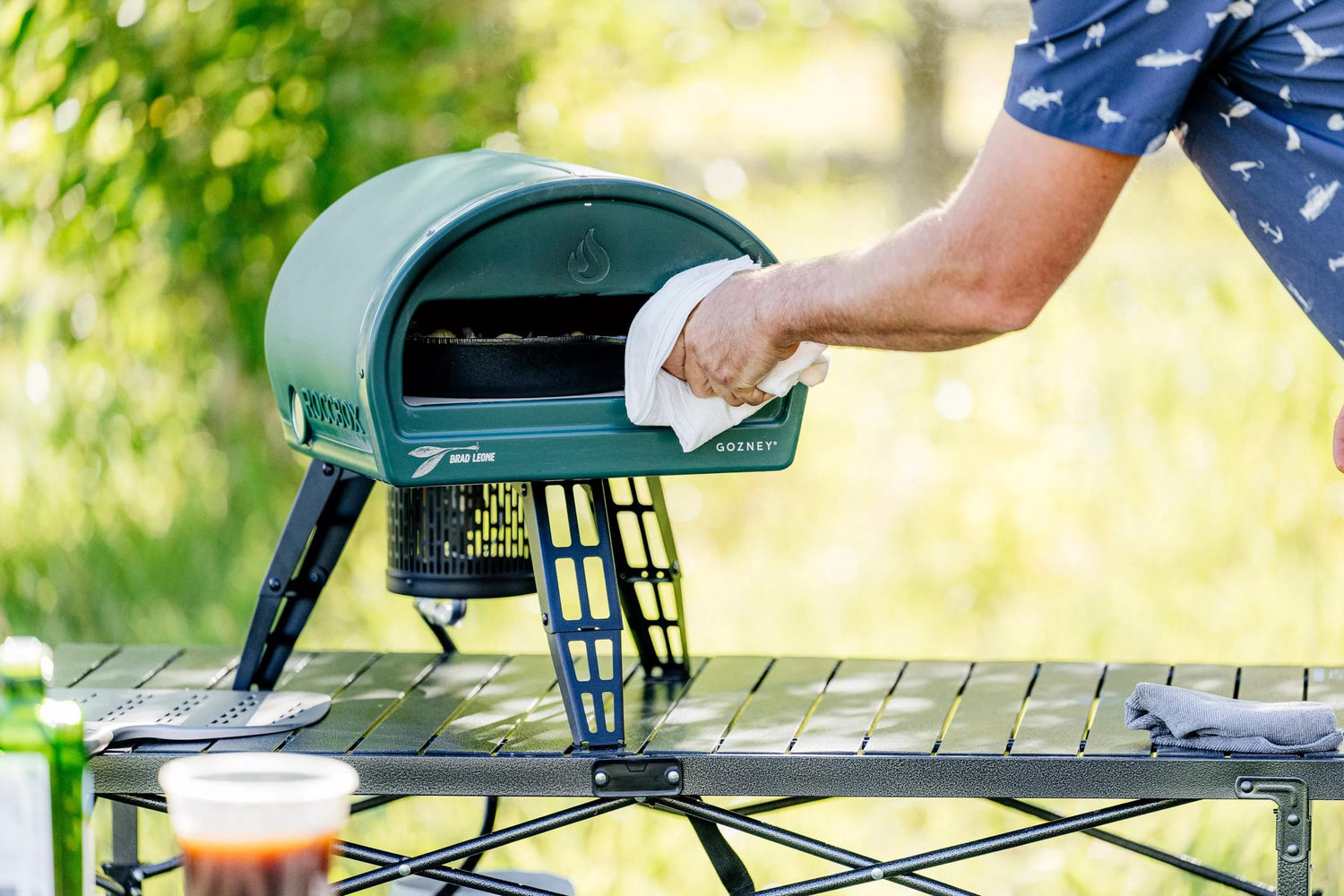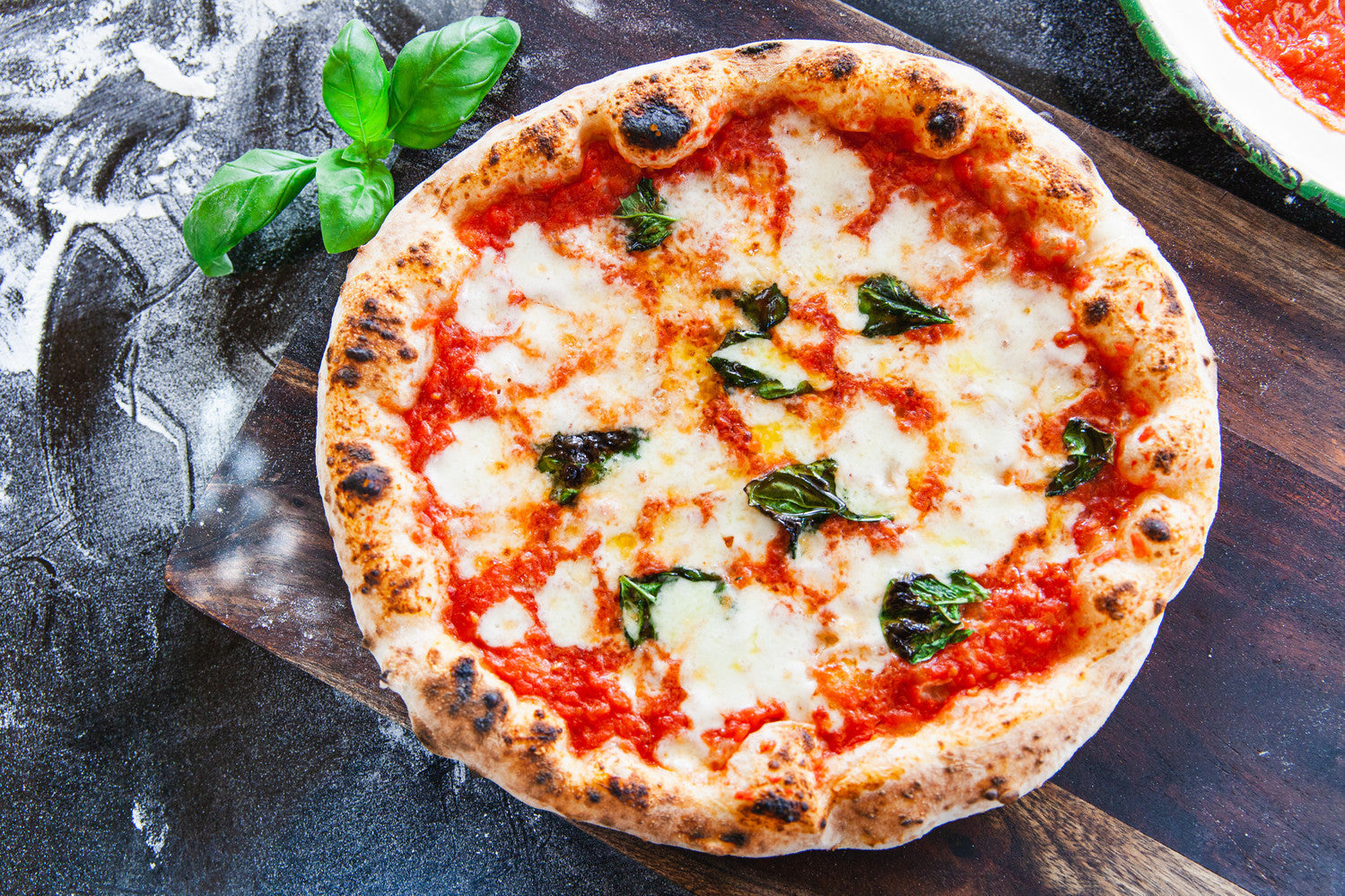The Psychology Behind Sharing Food and Cooking Together
Some say that happiness is best when shared, and when it comes to food, the UK is a nation of happy sharers. Whether it’s ordering a side of chips for two or cooking dinner for the whole family, 81% of the UK do share meals with others. But who are we sharing our meals with? What dishes bring us together? And what do we actually gain from eating with others?
To find out, our team at Gozney surveyed over 1,000 Brits about their food-sharing habits, exploring who they eat with, how often, and the benefits they associate with sharing meals with others. We have also partnered with psychologist and psychotherapist, Dr Andrea Oskis, author of The Kitchen Shrink, to gain further insight on the psychological, long-term benefits of sharing our meals, and why we should be sharing more.
Brits’ attitudes towards sharing food
While the majority of the UK likes to share their mealtimes with others, there are a few differences in who is more willing to share. Sitting around the dinner table may seem like a traditional thing to do, but the younger population is leading the way when it comes to group meals, with 89% of Gen Z admitting to sharing, the most of any generation. While 71% of those aged 55 to 64 do enjoy their food with loved ones, it seems that sharing is becoming the new normal for newer generations.
When it comes to being the chef, Brits tend to share their culinary skills with others, as 79% admit to cooking for others when they do cook. While cooking for others remains a meaningful way to care for others, women are more likely to take on the role of chef, with over four in five (82%) saying they will cook for others compared to nearly three in four (74%) men.
However, the act of sharing food has long been more than just for nourishment, but for care and connection too. According to Dr Andrea Oskis, the concept of philoxenia, or “guest-friendship”, was once seen as a sacred duty to offer not just a meal, but safety and warmth. Oskis states, “Philoxenia was always about building trust and strengthening social bonds. Cooking has always been described as a 'performative act', and we always want to be doing and serving the best for our guests.” In this light, sharing meals remains one of the most meaningful ways to build trust, strengthen relationships, and foster a sense of belonging.
Regarding who Brits share with, we are more likely to feel comfortable sharing meals amongst family members, with 86% claiming they feel comfortable sharing with them, as opposed to just 4% who feel uncomfortable. Dr Oskis explains this as “if we only know someone at drinks, we know them less. But once food is on the table, so is the opportunity for a deeper relationship.”

Brits tend to be more reserved about sharing meals with those they are not as close to. Nearly half (49%) admit they feel uncomfortable sharing food with strangers, while over a third (36%) feel the same about their neighbours. However, if we wish to be closer to our neighbours, Dr Oskis mentions the Wooley and Fishbach 2017 study, which showed that “strangers who are instructed to eat similar foods are more trusting of each other afterwards.” So, a garden barbecue with your neighbourhood may be a great start to making local friends.
What meals are we sharing?
Whether it’s snacks, a buffet lunch, or a Sunday roast dinner, the type of meals we choose to share differs from person to person. But which ones are we more likely to sit down and have with others?
For Brits, dinner is the most common shared mealtime, with 26% of people saying they sit down to eat it with others every day, and on average, they share this meal with others 3.5 times a week. It is followed by breakfast in second place (24%) and lunch in third (19%). Dr Oskis explains this using Robin Dunbar’s ‘The Big Lunch’ study, which found “evening meals are better for building relationships than lunch, the interpretation being that nightfall makes social activities more enchanting and engaging.”
Whether it’s family dinners, potlucks, or street food culture, these shared moments blend the personal with the collective. According to Dr Oskis, researchers such as Newson & Richerson and Neuman have called this commensality, describing it as a “social tool” that helps us meet nutritional needs, encourages meaningful conversation, and symbolises the relationships between us. Dr Oskis notes, “The family dinner time ritual is one special example that anthropologists have written much about. Dinner time provides the opportunity to come together after being apart during the day. It is a temporal, spatial, and social moment all in one.”
This intimacy of coming together is reflected in who we share our meals with the most. Brits say they are most frequently sharing meals with their partner around 4.4 times a week, on average, compared to just 2.4 times a week with family members. This makes sense, as over half of us (60%) believe that sharing food is a sign of intimacy in a relationship.

The ultimate shared food, according to our research, is pizza, with 35% of the UK sharing the delicious food at least once a week. In fact, over half of us (58%) believe that pizza is the best food to share with others. Whether it’s trying out a new Neapolitan pizza recipe or ordering takeaway, we enjoy dishing out the love one slice at a time. Nowhere seems to indulge in a pizza night more than London, where you can expect to join others in eating one or two on average 2.4 times a week.
The benefits of sharing food
So why does sharing a meal matter so much? Psychologists and foodies alike point to its power to boost our mood, strengthen bonds, and create a sense of belonging beyond the dining room table.

When we asked Dr Oskis about the benefits of sharing food and cooking together, Oskis noted, “food sharing fosters connection, trust, and a sense of belonging, but only if you are able to find these qualities within your relationships in the first place”. Therefore, it’s no surprise that 63% of us say that sharing food helps us feel more connected to our loved ones. Dr Oskis quotes, “The father of psychoanalysis himself, Sigmund Freud (1918) observed, 'To eat and drink with someone was at the same time a symbol and a confirmation of social community’.” Therefore, sharing food has always been more than just nourishment, but also a way to connect.
For the 55% that feel sharing food and cooking together helps them to relax and unwind, Oskis explains how cooking can be “a mindful and creative practice, much like art and gardening.” Not only does cooking create that proud sense of “I did that”, but Oskis also notes that “cooking side-by-side with another person allows for deeper conversational topics to come up”, allowing you to tune out so that you can “really tune in to what another person is saying.”
In order to gather everybody to the table, 49% of us believe that pizza brings people together more than any other food. Even the sensory experience of pizza is said to improve our mood, with 62% saying the smell of pizza instantly puts them in a good mood. So, whether you can agree that pineapple belongs on pizza or not, there are always toppings to bring groups together.
Dr. Oskis suggests that the sharing experience may even enhance the taste of our meals: “Research has suggested that food may actually taste better when consumed in the company of others, and associations can be built with food in positive social situations that make us have a preference for them.”
While the benefits of sharing may centre around deeper connections and being close to our loved ones, there are also practical benefits of sharing meals. For example, 61% of us believe that sharing food helps us reduce food waste, and while it’s predicted that the UK alone throws away 9.5 million tonnes of food waste a year, sharing our food allows us to do our bit in reducing that number.
The benefits of open-air dining and cooking, together
Whether you’re firing up the BBQ, baking pizzas outdoors, or enjoying a family picnic, eating outside does more than just change the scenery - it’s a powerful way to bring people together. Outdoor meals naturally foster relaxed, communal settings where sharing food feels easier and more joyful. Our research found that the average Brit dines outdoors about once a week and half says outdoor cooking is part of their summer routine, showing that this age-old tradition has truly stood the test of time - outdoor cooking may be just as meaningful today as it was thousands of years ago.

According to our research, it’s the smells and sounds of outdoor cooking that add to the overall enjoyable atmosphere of cooking al fresco, with 67% naming it the top benefit. As Dr Oskis states, “the kitchen is often the heart of the home, but for some it is the garden. And where kitchen meets the garden, for example with a live BBQ cooking area, that can be a home away from home, giving us all the benefits of green space.” Not only does it smell better, but over half of Brits (51%) believe that food tends to taste better when cooked or eaten outdoors, and 45% say they feel more relaxed than dining or cooking indoors.
Half of the respondents felt that cooking over an open flame creates a greater sense of togetherness, and the power of this dates back at least 790,000 years, when we started to cook with fire. Oskis explains, “being together around the fire allowed us to nurture our bonds with others and to be included, accepted and welcomed into a social group – in other words, to belong.”
This belonging helped us to survive, and archaeologist Martin Jones claims that the shared meals we have today “are no more than modern ‘social campfires’”. As almost half the population (47%) feels more socially connected when eating or cooking outdoors, it’s fair to say we are still drawn to the primal comfort of gathering around a fire.
Dr Oskis says, “outdoor food-sharing experiences are important for turning simple ‘spaces’ into ‘places’”, meaning that adding an outdoor pizza oven or barbecue can transform your garden space into a welcoming place for guests to eat. In fact, 54% say they would cook outdoors more if they had better outdoor space or equipment. It seems improving outdoor spaces and equipment could encourage more Brits to embrace outdoor cooking as a way to connect, creating even more opportunities for shared meals and social bonding.
Not only does outdoor cooking help aid togetherness, but over half of us (57%) also associate outdoor meals with positive memories or nostalgia. So, whether you are simply having a meal deal with a friend in the park, or hosting a neighbourhood barbecue in your garden, you can be sure that your loved ones will come away with full bellies and happy memories.
Looking for ideas on what to cook outdoors together? Check out these pizza recipes to get started:
Sources and methodology
To determine how the UK population feels about sharing their food and cooking with others, we surveyed 1,037 people with various questions regarding their eating habits with others.
Additional commentary was provided by psychotherapist Dr Andrea Oskis.


